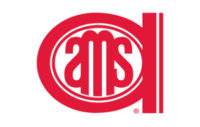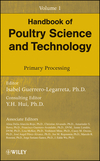In this video interview, Executive Director of AMSA Thomas Powell discusses the goal to standardize industry terms as well as the challenges he anticipates the task force may encounter during the process.
Andy Hanacek: So Thomas, thanks for standing here for a few minutes and talking to me. I wanted to touch base with you about a project that you guys have been working on at AMSA around the terminology of the industry. Some of the definitions, I guess you would call them catchphrases or things that have been out there in the consumer world. Talk to me a little bit about that project that you are working on and why you are embarking on that.
Thomas Powell: We’ve become aware over the years that no one really sat down and defined what is meat, let alone what is red meat, what is processed meat. You look at some of the things that have happened in our industry over the past couple of years with the dietary guidelines. You have the term processed meat, and it means a different thing every time you get to a different paragraph. So we are working with some of our partners, and we are coming up with a list of terms that we need to come to a consensus on what they mean. AMSA is stepping forward to bring scientists together to say scientifically what’s meat, what’s processed meat, what’s a cured meat and so forth. The goal of this thing is to provide the scientific community a common set of terms when we are doing our research, not only for meat scientists but for nutritionists, epidemiologists and others that work in the meat sphere as well as to give the industry the tools as well to communicate with the scientists and all of us to communicate together with media and consumers.
Hanacek: I was going to say, so this is something that would be a unified effort in the sense of you are working off the same glossary if you are going out to talk to consumers about what is a processed meat or what is a cured meat.
Powell: Exactly.
Hanacek: So what’s the time frame on that? How far along are you? When do you expect to start rolling this out? Is it going to be a book that you send out or is it going to be something that is fluid over the years?
Powell: We see this as something that we will be involved with for a long time. We’re starting off this month selecting the first task force that will tackle the terms red meat and processed meat and all the permutations thereof. They’re going to get started here this spring. By this summer, we will have a document that is going to be pushed out for peer review and review within the industry, and then by this fall, we hope to get that published in a scientific, peer-reviewed journal so it can be used as a standard. By the end of the year, we will have the first round done and have the second round kicked off. We’re working closely with partners in the industry, with other trade organizations. We are also reaching out to the poultry industry and probably eventually the seafood industry so that we get all the players involved.
Hanacek: You mentioned it is filling a need, because there is not a defined set of standard definitions. Do you see any challenges with this or is it just about putting it all together and coming up with that definition?
Powell: There are going to be challenges, because there’s already… you think about different groups that have already made definitions. You’ve got regulatory organizations and groups that have made definitions. FSIS has definitions for red meat, poultry and so forth. Ag Marketing has similar definitions for all kinds of things, so we going to have to as much as possible harmonize what’s out there, but when there’s confusion, we are going to try to bring clarity and come down with a scientifically defensible definition for these terms.






